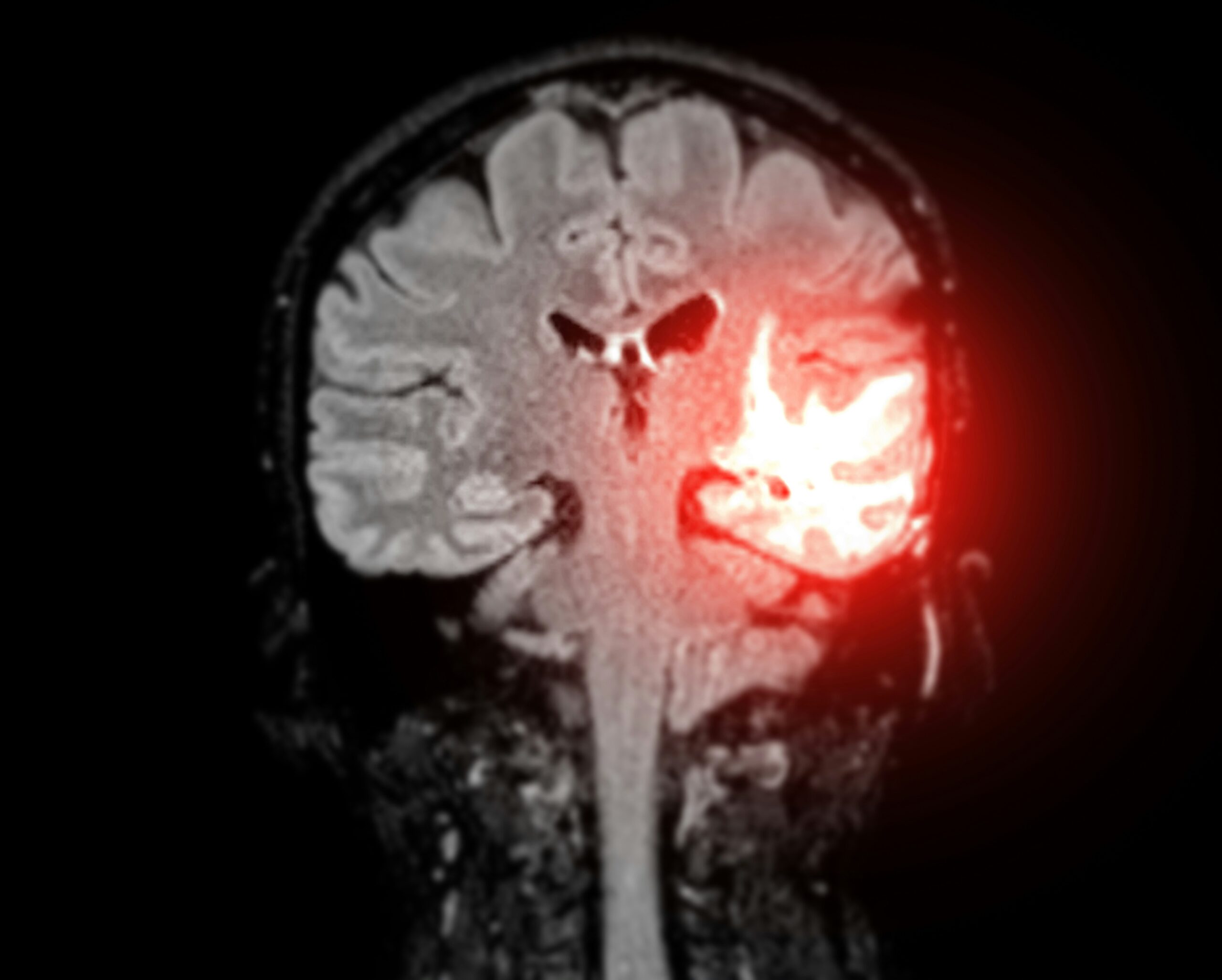Can You Get Retrograde Amnesia From a Car Accident?



Key Takeaways
- Retrograde amnesia from car accidents often results from traumatic brain injuries that disrupt memory storage in the brain.
- Memory loss after a collision can severely impact a person’s ability to work, maintain relationships, and carry out daily activities.
- Victims of amnesia caused by a car accident in South Carolina may be able to pursue compensation for medical costs, lost income, and diminished quality of life.
Car accidents can lead to serious brain injuries, including retrograde amnesia that erases memories formed before the crash. HawkLaw’s South Carolina car accident lawyers help clients understand their rights and fight for compensation when memory loss disrupts their futures.
Car accidents can leave you with all manner of injuries; some of the most serious are head wounds. Hitting your head or being jostled with enough force that your brain slams against your skull can mean traumatic brain injuries.
But can you get amnesia from a car accident? Brain injury from car accidents can indeed be serious enough to lead to cognitive function problems and even memory loss and amnesia.
If you’ve been in a collision and have experienced memory loss caused by brain trauma, you may be suffering from retrograde amnesia and could be eligible to file a claim and receive compensation. At HawkLaw, our South Carolina car accident lawyers can help you understand your rights and start the claim process. Here’s what to know.
What Is Retrograde Amnesia?
Retrograde amnesia is a neurological condition that makes it difficult or impossible to remember events, experiences, or information from before the start of the amnesia. It typically occurs as a result of damage to the areas of the brain that store memory. Illnesses can also cause it, but trauma to the brain is perhaps most often the source.
Are There Other Kinds of Amnesia You Can Sustain From a Car Accident?
You can also experience anterograde amnesia. This is when you can’t form new memories. The condition can vary in severity, but in the worst cases, anterograde amnesia can permanently keep you from retaining new information.
Post-traumatic amnesia can also occur after traumatic brain injuries. People who experience it can have serious trouble recalling the event that led to the amnesia as well as the injury itself. In the most severe cases, they can struggle to know who they are.
People can experience multiple forms of amnesia from car accidents if trauma is sustained to more than one brain region.
What Are the Symptoms and Signs of Retrograde Amnesia From a Car Accident?
Car accident victims with retrograde amnesia may experience any or all of the following symptoms:
- Failure to remember events that happened before the onset of amnesia
- Failure to remember names, places, dates, or other facts from before the accident
- The ability to retrain older memories, such as childhood ones
- The ability to recall skills like playing the piano or riding a bike despite memory problems
Amnesia-induced brain injuries often appear with other cognitive issues, especially if they were the result of severe car accidents. For instance, some people may experience trouble finding the right words, while others may have concentration problems or mental “fogginess.”
In cases where retrograde and anterograde amnesia occur together, you can struggle to build new memories while also not being able to remember events before the accident.

Should You See a Doctor if a Car Accident Causes Memory Loss?
Loss of memory after car accidents is generally a red flag that something is wrong. Often, brain trauma can cause you to forget that you hit your head, so even if you’re not sure whether you suffered a brain injury, make sure to see your doctor.
Getting a diagnosis can help you receive the care you need while also starting a record of the injuries you suffered in the collision. The more evidence you have of the injury and how it impacts your daily life, the higher your chances of recovering compensation.
How a Doctor Diagnoses Retrograde Amnesia
If you’ve been in a car accident and memory loss is one of the symptoms you’re experiencing, your doctor will likely run a few tests, beginning with standard blood tests and a physical exam. They may also schedule imaging tests like MRIs and CT scans to be able to spot brain abnormalities, such as lesions. You will likely undergo a neurological evaluation of your speech, vision, hearing, and reflexes.
Additionally, you might undergo cognitive tests to see whether your short- or long-term memory is affected and to what degree. This can include asking “simple” questions, such as the date and your full name; it may also include you drawing a simply shape, or being asked to follow written or oral instructions. All these “tests” are designed to identify the type of cognitive disfunction you may be experiencing alongside the memory loss.
Your doctor may ask you many questions about the accident you experienced, so offer as many details as you can remember. If you cannot remember, be honest: do not try to force a memory in order to “pass” the test; the doctor needs to know what you are experiencing and how you are experiencing it in order to diagnose you correctly. However, if there was someone else in the car with you when it happened, it may be helpful to your doctor for them to fill in the blanks.
Is There a “Cure” for Retrograde Amnesia?
There is no direct cure for long-term or permanent retrograde amnesia – no pill you can take, or procedure you can undergo, that will put an end to the condition. Your doctor might combine a number of options and adjust care as needed depending on how your amnesia progresses. This may include:
- Occupational Therapy: With occupational therapy, you can start trying to recover the memories you’ve lost by relying on the intact older memories you may have. Occupational therapists can also teach you management skills so that you can work around retrograde amnesia.
- Psychotherapy/Psychological Care: For those who suffer severe retrograde amnesia, psychotherapy sessions can also be helpful. These sessions can help with acceptance of the condition, and teach you coping skills for moving forward. Some psychotherapists may try hypnosis or regression to see if they can help you unlock older memories.
- Updated Technology: Your doctors may encourage you to use your smartphone more, if you’re living with memory loss of any kind. Not only can you access photos of the time before your accident, but you can download free or low-cost apps that can help with cognitive skills.
Note that in some instances, the retrograde amnesia is temporary. If this is the case for you, you may start seeing improvements in your symptoms after a few days.

Can You Sue Someone for Amnesia From a Car Accident in South Carolina?
In South Carolina, you can file a claim or lawsuit against another driver whose negligence caused you harm. The first thing to consider is who was responsible for the collision.
Determining fault in a South Carolina car accident is vital because the state has a fault-based system for traffic accidents. This allows you to file a claim for compensation against the at-fault party’s insurance. To do so, you must first show that the other person was negligent or willfully reckless in their conduct.
If you’re able to demonstrate that the other party was responsible for the collision, you can file for compensation, including economic and non-economic damages. This compensation can cover medical expenses like the costs of MRIs and hospital stays, as well as any future care you will need.
Lost wages can also be covered by economic damages. If you won’t be able to return to work because of the amnesia, you can claim loss of earning potential, too. Additionally, if you’ve experienced non-financial losses, like pain and suffering or loss of enjoyment of life, you can claim non-economic damages.
How Can a South Carolina Car Accident Lawyer Prove Your Life Is Affected by Memory Loss?
Your South Carolina personal injury lawyer plays a vital role in demonstrating that you have suffered retrograde amnesia and showing how it impacts your life. We typically begin by painting a picture of the economic losses you’ve suffered.
This will require gathering medical records that show the various diagnostic tests you may have gone through, as well as the expenses behind all of the treatments you received. You may lose work hours or time with your loved ones, along with the expenses of traveling to receive care. The expenses associated with brain injuries can be substantial, as they often require ongoing care.
After we present proof of your expenses, we can look at your income loss. Retrograde amnesia is not like other conditions, because your entire life can be (metaphorically) wiped out in an instant. For folks with professional degrees or tradespeople, this may mean of a loss of decades of education and training, too. Imagine a neurosurgeon who can no longer remember basic anatomy, an accountant who can no longer remember higher level math, or electrician who can no longer remember how to wire a building.
To demonstrate that your earning potential has suffered, your attorney can gather employment records and pay stubs, as well as testimonies from colleagues, to show how much you have lost. We will review any outstanding educational debt you have that you can no longer pay because you cannot work –debt accumulated for a life you may never get to live again. We also value losses such as:
- Benefits, including health care
- Retirement contributions
- Stock options
- Bonuses and COLA adjustments
- Additional perks, such as gym memberships or internet costs for home offices
Just as important is the way we strive to show that your quality of life has decreased. Every day can be more complicated if you don’t remember basic things about your life and your loved ones. You may have to spend time writing notes to yourself and relearning who you are, which can be stressful and result in anxiety or depression. Your treatments and tests can also impact you psychologically, causing distress and worry.
Your lawyer may speak with family members to get testimonies on what your life was like before the accident as compared to now. Although it can be difficult to put a price tag on quality of life, having as much evidence as possible showing the stark difference between your pre- and post-accident days can help you get fairer compensation.
Speak to an Experienced SC Car Accident Lawyer Today
You’re not required to have a personal injury lawyer representing you, but working with an attorney may be the best move for you. At HawkLaw, P.A., our South Carolina car accident lawyers have decades of experience fighting for accident victims throughout Greenville, Spartanburg, Columbia, Charleston, and Anderson. (The Anderson office is by appointment only, and most clients will be served out of Greenville.) We can negotiate with insurance companies and file a lawsuit on your behalf if they refuse to negotiate fairly. Our results demonstrate our commitment to providing comprehensive services that put clients first.
You don’t have to suffer alone. Let HawkLaw focus on your fight so you can focus on your recovery. Contact our team to schedule a free* consultation with a South Carolina injury attorney who understands memory loss, brain trauma, and amnesia from car accidents.
Frequent Answered Questions
Yes – but the accident doesn’t even have to be “bad” to cause harm. If you hit your head or if the force of the collision results in your brain moving in your skull, you can suffer traumatic brain injuries that can result in memory loss and amnesia. If you think you may have hit your head or you were jostled forcefully during the accident, make sure to see your doctor as quickly as possible.
Many people use “amnesia” and “memory loss” interchangeably. However, experiencing amnesia after car accidents is not the same as experiencing memory loss.
For one thing, amnesia typically occurs abruptly as a result of some form of trauma or illness. Memory loss can be more gradual, and there may only be a few memories impacted. With amnesia, the impairment tends to be more widespread and dramatic. The diagnostic process and treatment of these conditions also differ.
Yes. You can suffer only memory loss during car accidents. There are different types of memory loss, just as there are various types of amnesia.
Right after a car accident occurs, it’s important to make certain you’re safe. That usually means getting out of the vehicle, but if you hit your head or are in a lot of pain, don’t try to move. Instead, wait for emergency medical services to arrive. They will be able to tell if you have a concussion or more serious head trauma.
Unless you have to go to the hospital, speak with police officers so that they can write an accident report and start gathering evidence. Take photos of the vehicles and of the road, as well as of any injuries you have. If you have cuts or other marks on your head, make sure to take plenty of images of them.
Even if you’re not sure whether you’re seriously hurt, it’s important to go to your doctor for a full examination.
John D. Hawkins
John Hawkins is the Founder and CEO of HawkLaw He has been licensed to practice law in South Carolina since his graduation with honors in 1994 from the University of South Carolina School of Law, where he was on the Law Review and Order of Wig and Robe.
-
$3,000,000*
Trucking Accident Settlement
-
$1,005,000*
Car Accident Settlement
-
$575,000*
Personal Injury Settlement
"*" indicates required fields











